How Long Do German Shepherds Live?
Whether you’re cradling your greying German Shepherd or considering buying a German Shepherd puppy, all dog owners would love for their dogs to live as long as they do.
But since this isn’t possible, it might have you wondering—how long do German Shepherds live?

German Shepherds live anywhere from seven to 13 years old. A variety of genetic and natural factors can cause their death, but there are some steps you can take to increase the chances of your pet living a longer life.
I know firsthand how much love German Shepherds bring to a home and will help you understand the nuances of the German Shepherd’s lifespan.
The German Shepherd’s Lifespan
As large dogs, German Shepherds have a shorter lifespan than many breeds. The Kennel Clubs, which has been tracking the lineage of German Shepherds since 1908, says that these dogs live an average of seven to ten years.

If your heart is already breaking thinking about the relatively short time you may have with your beloved German Shepherd, remember that this is an average range; some German Shepherds can live up to 13 years old.
Plus, with the invention of better medicine and technology to catch diseases early, German Shepherds are in a better position than ever to live at the long end of their lifespan as long as you’re caring for them properly.
The Science Behind Why Large Dogs Die Younger
In nature, large animals typically live longer than smaller animals of other species. When left to their own devices without human intervention, horses live longer than mice, and mice live longer than a fly.
But dogs are unique. Even though most larger animals within the same family live longer than their smaller counterparts, small dogs average a longer lifespan than big dogs.
Evolutionary biologists have been wracking their brains for years about why this could be. One of the most popular theories is that large dogs die younger because they age faster than small dogs.
Another potential piece of the puzzle is that bigger dogs tend to be more active than younger dogs. They often accompany their owners on hikes where they have a higher chance of injury than a small dog that spends much of its life curled up on its owner’s lap on the couch.
Situations That Impact a German Shepherd’s Lifespan
Some of any given German Shepherd’s lifespan depends on luck. However, several preventable and non-preventable genetic factors play a role too.
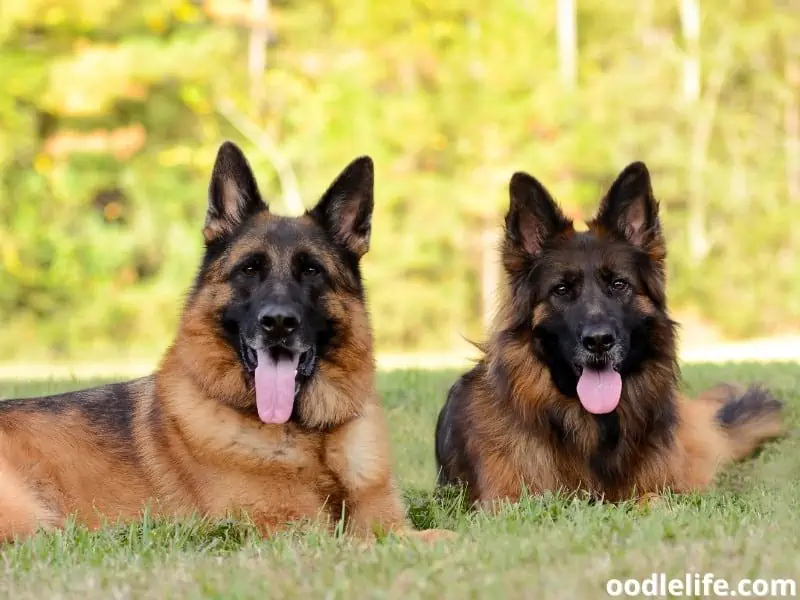
Poor Breeding Practices
German Shepherds are purebred dogs. So, most people purchase them from breeders.
Unfortunately, not all breeders are honest, valuing money over the quality of a puppy’s life. There are several ways for a breeder to reduce the lifespan of a German Shepherd, such as breeding dogs with known hereditary health issues, inbreeding, and failing to give the mother proper nutrition when she’s pregnant and nursing.
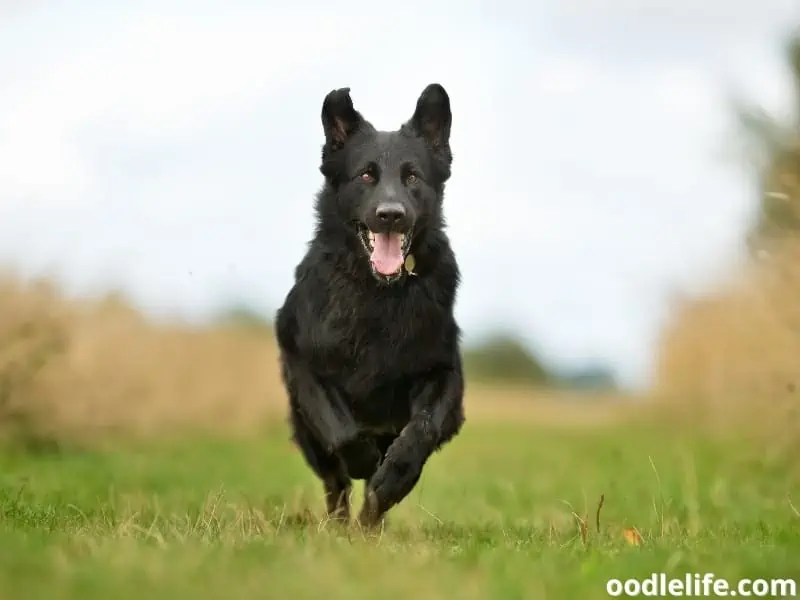
For this reason, it’s crucial to do your due diligence when selecting a German Shepherd breeder. Read reviews online, ask for paperwork, and visit the breeding facility in person.
Heavy Workload
People with hard labor jobs, such as working in a mine, will naturally have a higher chance of injury and reduced mobility later in life compared to a store clerk. The same scenario works with German Shepherds in terms of their physical effort compared to many smaller dog breeds.
For example, many people use German Shepherds as:
- Police dogs
- Military dogs
- Guard dogs
- Search and rescue dogs
So, when looking at the average German Shepherd’s lifespan, remember that they include dogs that work in these environments. If your German Shepherd doesn’t fall into any of these categories, there’s a higher chance it may enjoy a longer life.

Breed-Specific Issues
The German Shepherd isn’t unique in having a particular set of common health issues for their breed. However, breed-related health problems are one of the most common reasons that German Shepherds die young or have a reduced quality of life as they grow older.
I’ll cover these issues in detail next. But for now, if you’d like a German Shepherd but are worrying about them dying young, consider bringing home a German Shepherd mix.
It’s a well-accepted idea in the veterinary world that mutts have a reduced risk of genetic issues. That’s because they have a more diverse gene pool than purebreds, which dilutes the amount of any single disease that could be waiting to strike a German Shepherd at birth or as they age.
Health Problems German Shepherds Face
When considering the question, “How long do German Shepherds live?” genetic health issues pose one of the biggest threats to early death or reduced quality of life. Below are some of the most common health issues that German Shepherds encounter.
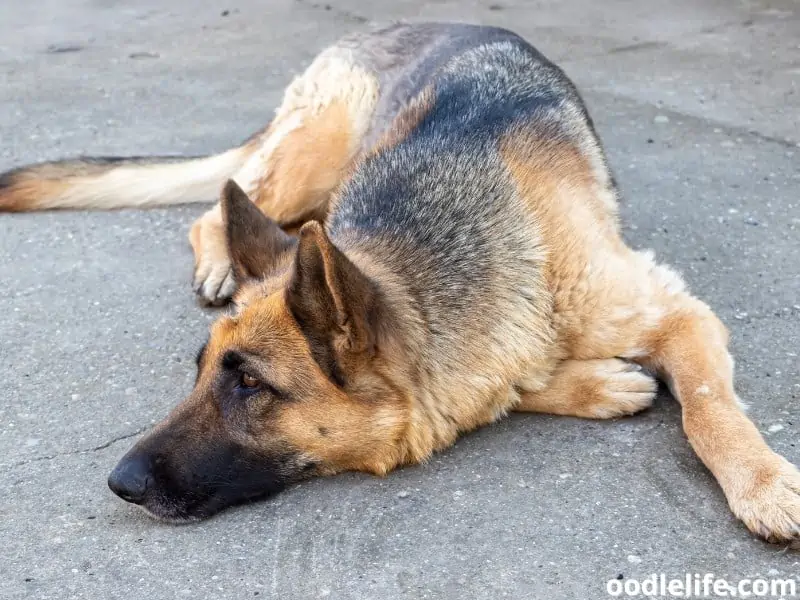
Cancer
Osteosarcoma and hemangiosarcoma are the two most common types of cancer in German Shepherds. Scientists believe that German Shepherd parents transfer these bone and spleen cancers, respectively, through their genes.
Of the two, hemangiosarcoma is the most challenging cancer to treat. If you choose to have your veterinarian perform surgery and chemotherapy on your dog, you can expect it only to increase their lifespan by six to eight months.

In contrast, osteosarcoma is easier to treat. Chemo and radiation therapy are both relatively effective, and some people opt for amputation if the bone cancer is in a German Shepherd’s single leg.
Musculoskeletal Disorders
Musculoskeletal disorders is an umbrella term that encompasses a broad range of muscular and skeletal issues that German Shepherds frequently face.
Some of the most common musculoskeletal disorders in German Shepherds include:
- Hip dysplasia
- Glycogenosis
- Osteochondrosis
- Muscular dystrophy
Many of these conditions throw off a German Shepherd’s balance, causing them to have trouble walking or standing.
Although you’ll be able to tell when a musculoskeletal disorder progresses enough, it’s essential to take your German Shepherd to annual vet appointments, as your veterinarian might be able to catch and manage early signs of it.
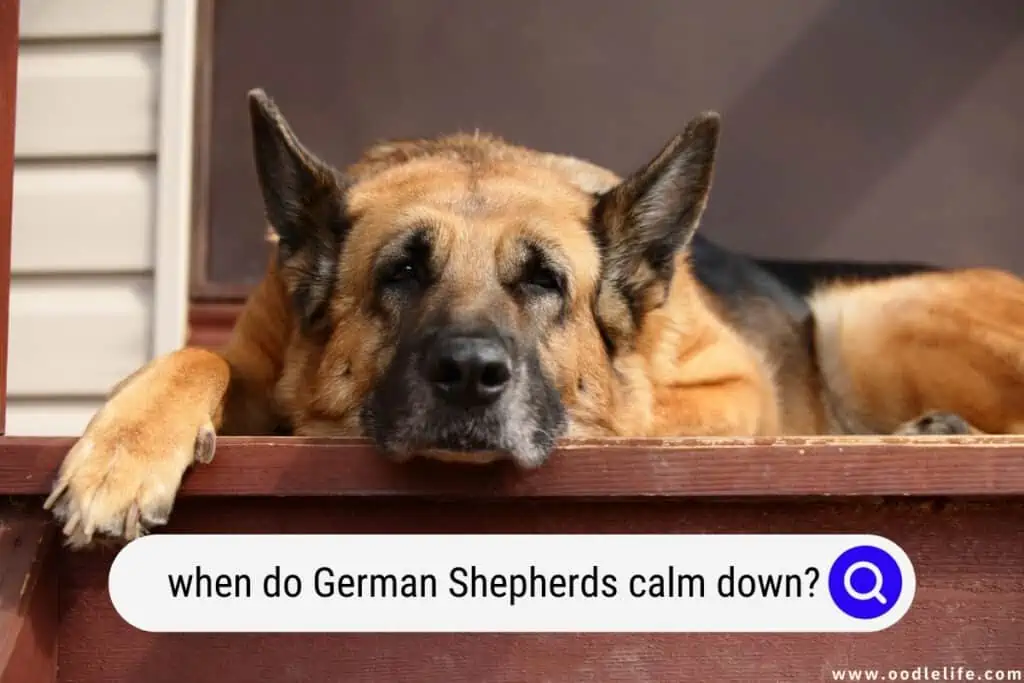
Epilepsy
Epilepsy is a genetic condition that German Shepherds have a higher-than-average chance of acquiring. It can seem like a harsh irony to people familiar with German Shepherds serving as seizure-detecting dogs.
There’s no way to cure epilepsy in German Shepherds. However, you can manage the issue with medication and by keeping your dog in a stress-free environment.
Some people even choose to welcome another dog into their family, as the dog can often alert the owner if the German Shepherd is having a seizure.
Tips for Increasing Your German Shepherd’s Lifespan
I want to start with this: No matter how well you care for your German Shepherd, they may die young at no fault to you.
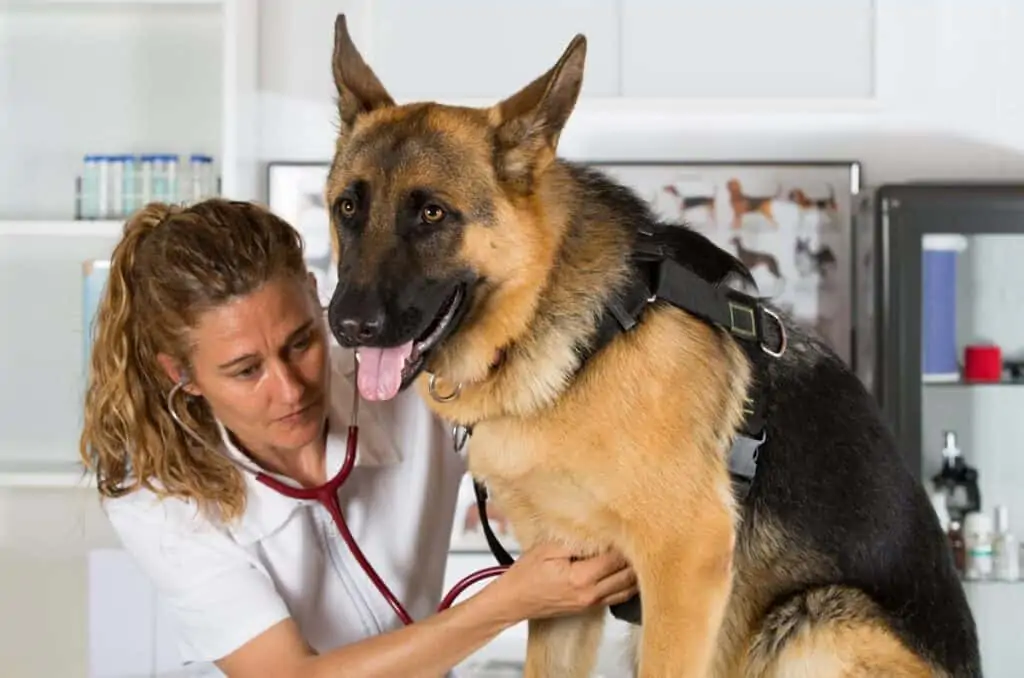
But the good news is that there are often ways to reduce the chances of your German Shepherd dying younger than necessary. Implementing the strategies below will help your dog live its healthiest life possible.
Regular Vet Checkups
Adult German Shepherds should visit the vet for a general check-up at least once per year. German Shepherd puppies require vet visits even more frequently for vaccinations.
The advantage of not skipping out on your vet visits is that your veterinarian might be able to catch and treat illnesses in their earlier stages.
High-Quality Diet
A high-quality diet starts when your German Shepherd is a puppy if you own them at this stage. Manufacturers make puppy food for large dog breeds specifically designed to offer your pet complete nutrition while keeping their growth rate at a gradual pace, which could prevent health issues in the long run.
German Shepherd puppies require a high amount of protein when they’re younger. However, as they mature into adults, their protein needs decrease. For this reason, it’s crucial to select age-appropriate food from high-quality brands.
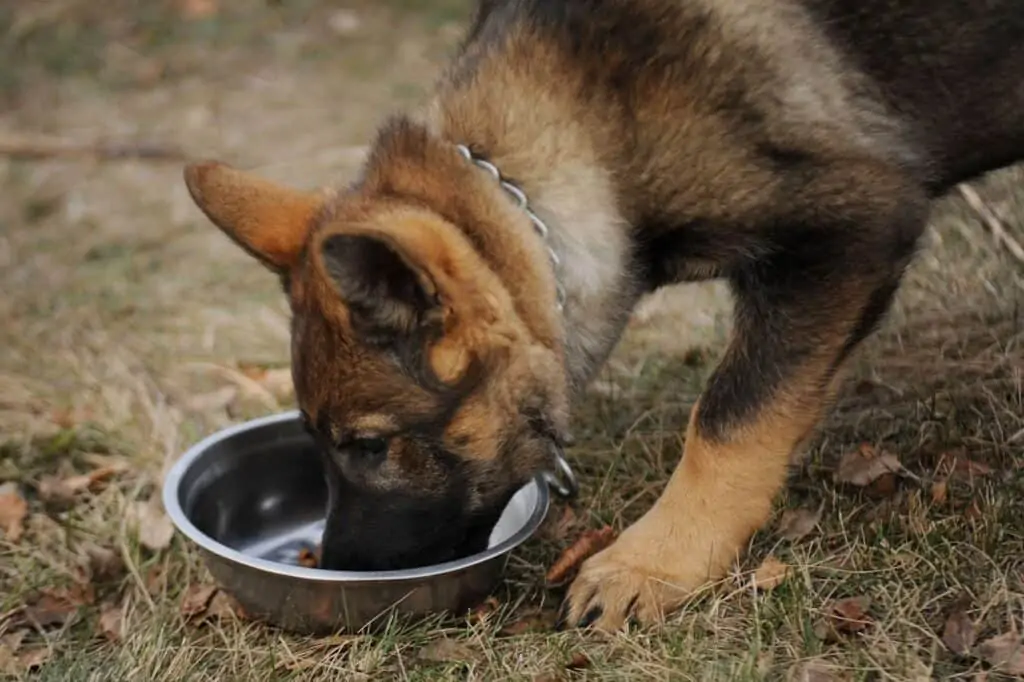
Exercise
German Shepherds are a large dog breed requiring plenty of playtime and room to run. You should ensure your pet gets a minimum of 60 minutes of exercise broken up into at least two sessions per day.
Giving your German Shepherd frequent exercise will help prevent obesity, diabetes, and heart disease. It’ll also boost their mood, keeping them emotionally sound.
Since German Shepherds are high-energy dogs that love a challenge, mixing up the exercise you give them is important. Playing fetch, going for a run together, and hiking are all great choices.

Teeth Cleaning
Like humans, a dog’s dental health ties closely with the rest of their body’s health. For this reason, you should purchase dog-friendly toothpaste and a toothbrush.
Ideally, you should brush your German Shepherd’s teeth every day. But as long as you do so at least three times per week, you’ll be ahead of most dog owners.

How To Tell if Your German Shepherd Is Nearing the End of Its Life?
It’s never easy losing a German Shepherd. In some cases, your dog might show gradual aging changes over time. In other cases, when they have a disease, you might notice your German Shepherd rapidly declining in health.
Some signs that your German Shepherd might be nearing the end of its life include:
- Lack of appetite
- Gets tired quickly
- Labored breathing
- Inability to stand or walk far
- Defecating and urinating uncontrollably
Of course, if your German Shepherd displays any of these symptoms, it doesn’t automatically mean they’re on their deathbed. However, you should assess the situation and take them to the vet.
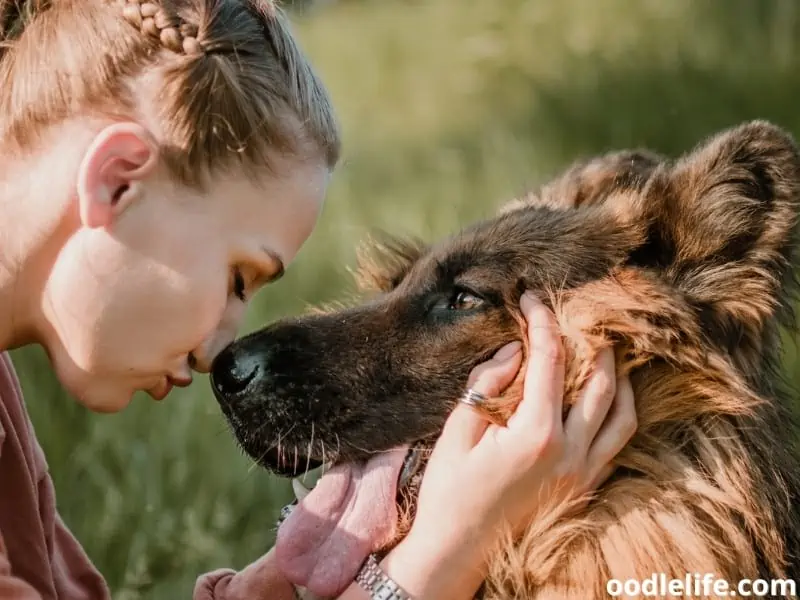
Caring For Your German Shepherd
So, how long do German Shepherds live? Not long enough, if you ask me.
But even though German Shepherds don’t live as long as smaller dogs, I wholeheartedly believe the love and warmth they bring to a home is worth the emotional pain of having to part with them sooner.